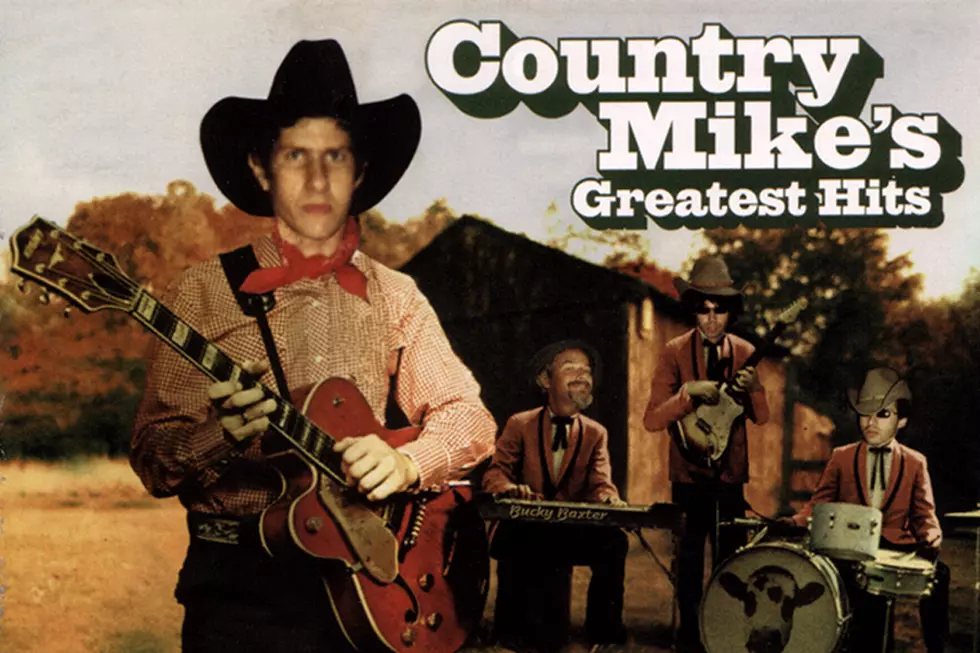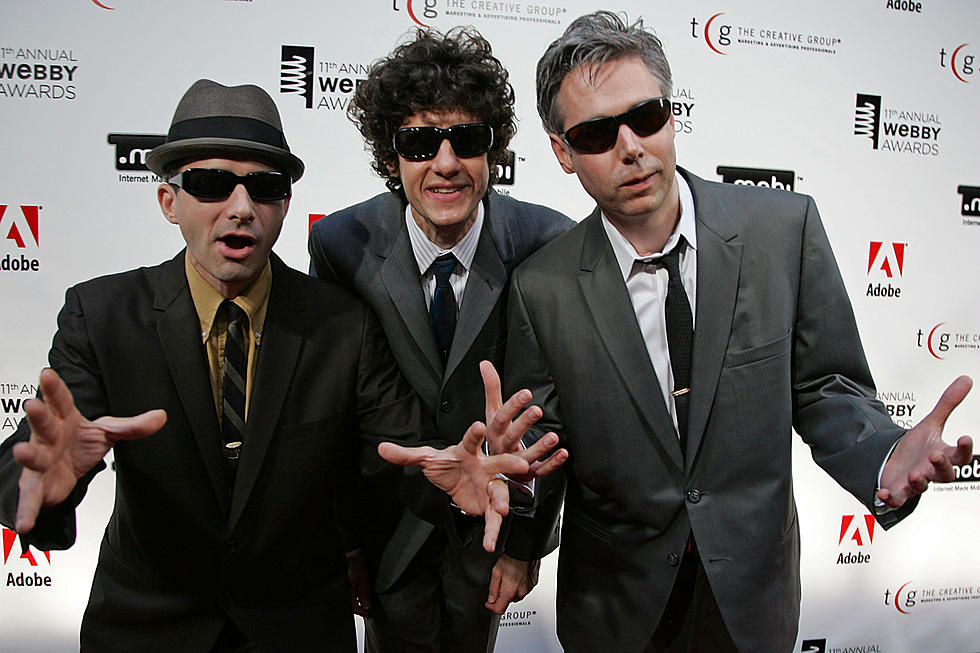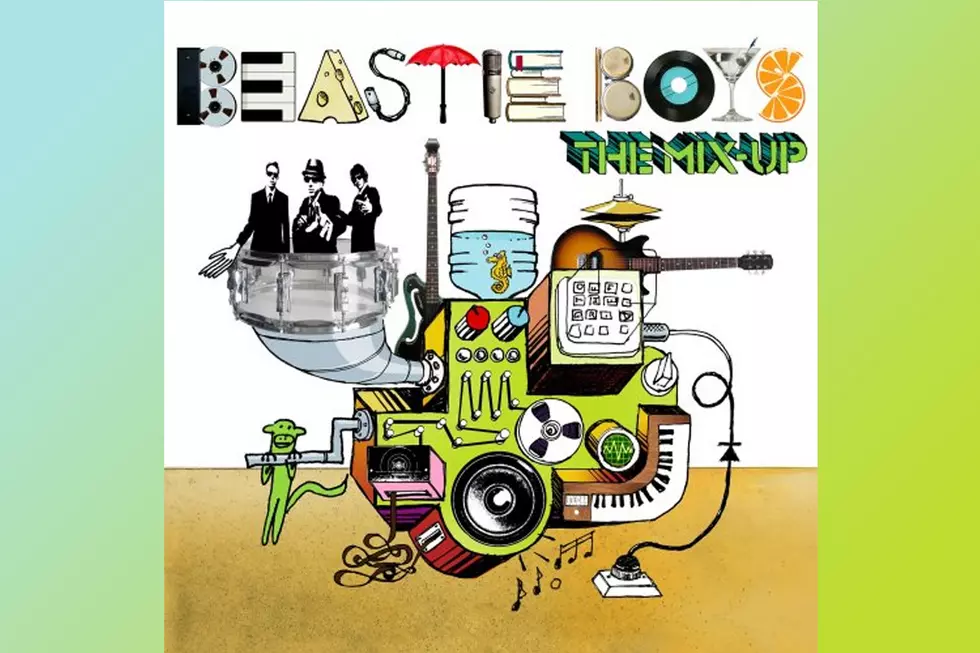
Sabotaged! How the Beastie Boys Lucked Monster Energy Out of $1.7 Million
"[We're] very lucky," Michael "Mike D" Diamond told a courtroom in New York City's Thurgood Marshall Courthouse on May 27, the opening day of the Beastie Boys' recent jury trial against Monster Beverage Corp. that resulted in a $1.7 million summary judgment in favor the of the group.
The suit pitted surviving B-Boy members Diamond and Adam "Ad-Rock" Horovitz, plus late rapper Adam "MCA" Yauch's widow, Dechen Wangdu Yauch, against the energy drink makers over charges of copyright infringement and other intellectual property violations after Monster posted a video online featuring remixes of several of the trio's songs.
Diamond was on the stand, testifying about the extremely rare and impressive level of success his band achieved over the course of its three-decade long career. The Beastie Boys lucky? Very lucky, indeed.
Not to disparage them in any way, but no matter how much talent, vision and ingenuity the Boys possessed -- and they did possess quite an impressive amount of each -- the members would be foolish not to admit that some amount of luck had a hand in their worldwide superstardom. You don't go from being an unknown Brooklyn hardcore act to multi-platinum rap stars to critically acclaimed elders statesmen in the music community en route to induction into the Rock and Roll Hall of Fame without a little kiss from Lady Luck.
But neither the talent nor the luck behind the B-Boys' success was in question at the Thurgood Marshall Courthouse. Neither was Monster Beverage Corp.'s culpability in the infringement case (they eventually admitted fault). What was was at stake was just how much Monster should pay the band in damages.
The Beasties insisted they deserved about $2 million: a cool $1 million in damages for the song licenses and another $1 million or so for the "implied endorsement" of being featured in the clip. Monster, of course, had another figure in mind: $175,000. Which was right? To decide, let's look over the facts of the case.
Back in May 2012, Monster sponsored a snowboarding competition held in Canada called the Ruckus in the Rockies, and promoted it with a video on the company’s website featuring footage from the event set to remixes of classic B-Boy cuts like 'So What’cha Want,' 'Sabotage' and 'Looking Down the Barrel of a Gun.' The complaint against the beverage maker stated that the video was “comprised substantially of excerpts from the Beastie Boys Sound Recordings and the Beastie Boys Musical Compositions totaling more than three minutes in duration.”
The crux of the Beasties' argument was based significantly on the band's long-running refusal to allow the use of their music in advertisements or licensing for other commercial purposes, a stance upheld in Yauch's will with the manifesto that "in no event may my image or name or any music or any artistic property created by me be used for advertising purposes."
While on the stand, Horovitz simplified things for the jury: “We don’t license our songs for products." Or did they? The defense quickly challenged that idealistic tilt, producing a giant blow-up of what looked like an ad for a watch featuring Diamond dressed up as a sailor, as well as a snowboarding video from the same company featuring Beasties music.
Horovitz, still on the stand, seem unfazed, explaining that his bandmate was friends with the company's owner and had donated all profits to charity. “We like sports ... We come from a community of snowboarders, skateboarders, extreme sports world, so we’re enthusiasts of that,” he rationalized.
Monster's initial defense placed the blame on DJ Z-Trip, who was hired by the company to spin at the Ruckus in the Rockies after-party and turned in a set featuring numerous Beastie Boys tunes in honor of late Beastie Yauch, who had died from cancer at the age of 47 just days before. Monster claimed it was under the impression that Z-Trip had permission to spin the tunes, and thus simply made "a mistake" by including them in the promotional video featuring clips of Z-Trips set.
When the judge shot down Monster's claim that DJ Z-Trip even had the ability to imply the Beasties' consent by apparently approving the video -- after a spirited courtroom ruling on the meaning of the word "dope," no less -- the defense's tactics shifted to minimizing the damage.
With DJ Z-Trip out of the picture, Monster straight-up admitted fault and took on another defense: claiming that the amount of money the Beasties sought was excessive. But was it? The case brings to mind a similar music lawsuit: gravel-voiced singer Tom Waits' suit against Frito-Lay in 1990. The specifics of the two suits weren't identical -- Waits went after the corn-chip manufacturer for hiring a sound-alike to impersonate his voice in a commercial -- but the overall idea was the same: Waits worried that fans believed he had endorsed the makers of Doritos. A Californian jury agreed, and awarded him $2.5 million.
But here's where we differentiate between the B-Boys' and Waits' suits. The Frito-Lay commercial, which was clearly meant to mimic his 1976 song 'Step Right Up,' was part of a major marketing campaign broadcast for more than two months on more than 250 radio stations across 60 national markets, including major cities like Los Angeles and Chicago. The Monster Energy video was online for five weeks, but racked up less than 14,000 views. Far more fans of the Beastie Boys only became aware of Monster's infringement when the lawsuit was filed, a lawsuit that made very clear the Beasties' position on the matter.
It's clear that Monster never should have posted the Ruckus in the Rockies video with music from the Beastie Boys. But with a spin count less than 14,000, the $1.7 million judgment against the company means it's on the line for nearly $200 for each view of the clip. That seems a bit excessive, especially considering the amount of press the band has since received.
No matter how many bad puns found their way into headlines (yes, ours included), nobody reading about the case was ever confused into thinking the band allowed the use of their music in an ad. In fact, on the whole, the net result of the case probably only reinforced the band's anti-commercial stance for millions.
So, did the Beastie Boys really get lucky once again? Actually, the jury's still out on that one -- Monster is planning an appeal, and there's a chance the case could wind through various courts for years. But if nothing else, the verdict and large award shows that the band's body of work is not just important to the B-Boys' legion of fans worldwide, but also to a jury of their peers. Even without the $1.7 million yet in the bank, that's gotta be worth something, right?
More From Diffuser.fm









